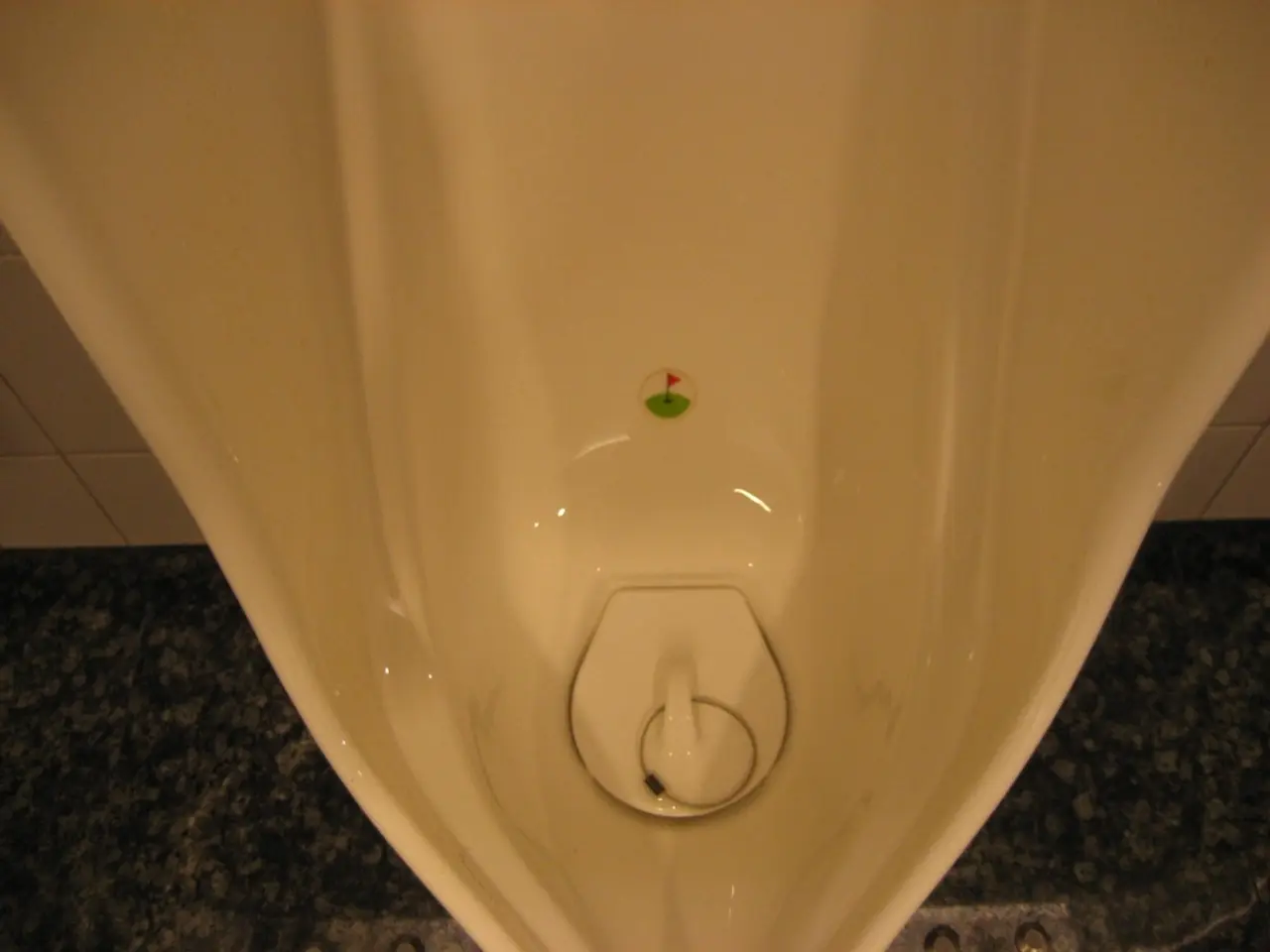Urine-induced Orgasms: The trigger for sexual climax during urination
In a fascinating exploration of human physiology, a phenomenon known as urinary incontinence during orgasm, or climacturia, has gained attention. This condition, characterised by involuntary urine leakage during sexual climax, has various potential causes and can be managed effectively.
### Potential Causes
The primary cause of climacturia is often dysfunction of the internal urethral sphincter, a muscle at the base of the bladder that normally tightens during sexual climax to prevent urine from escaping. Several factors can contribute to this dysfunction, including:
1. Pelvic muscle or sphincter dysfunction: Weakening of the pelvic floor muscles or the internal urethral sphincter can lead to inadequate closure during orgasm, resulting in urine leakage.
2. Prostate surgery or conditions: People who have undergone prostate surgery, such as a prostatectomy, are at risk due to potential nerve or muscle damage. Prostate enlargement or cancer can also contribute to urinary incontinence in men.
3. Childbirth and pelvic floor trauma: Childbirth, particularly vaginal delivery, can weaken pelvic floor muscles and nerves essential for bladder control in women. Hysterectomy or pelvic organ prolapse may similarly contribute.
4. Aging and hormonal changes: With age, bladder capacity decreases, and involuntary contractions increase. Menopause in women lowers estrogen levels, deteriorating the bladder and urethra lining, worsening incontinence.
5. Neurological disorders: Diseases such as multiple sclerosis, Parkinson's, or spinal injuries can disrupt nerve signals controlling bladder and sphincter muscles, leading to incontinence during orgasm or otherwise.
6. Temporary causes: Urinary tract infections, irritation, or medications (diuretics) may cause transient urinary leakage.
### Treatment Options
Treatment for climacturia depends on the underlying cause and severity. Options include:
- Pelvic floor muscle exercises (Kegels): Strengthening pelvic muscles can improve bladder control and reduce climacturia. - Medications: Alpha-blockers or decongestants can sometimes enhance sphincter function and reduce leakage. - Surgical interventions: In severe, persistent cases, surgical options like urethral slings or artificial urinary sphincters may be considered to restore continence. - Lifestyle modifications: Limiting bladder irritants such as caffeine and alcohol, maintaining good hydration, and emptying the bladder before sexual activity can help manage symptoms. - Professional evaluation: Because causes vary and some relate to serious conditions, seeing a healthcare provider for diagnosis and personalised management is crucial.
### The Pleasure of Peeing
While not a medical condition, some individuals find sexual gratification from peeing. This sensation is thought to be due to the relief of tension and comfort provided by peeing, particularly if one has held in urine for some time. For those who enjoy this sensation, masturbation can be a healthier, easier way to achieve orgasm.
### The Term "Peegasm"
The term "peegasm" originated from a Reddit thread about a person who could orgasm by delaying urination. While this practice is not recommended due to potential health risks, it underscores the complex and varied nature of human sexuality.
In conclusion, understanding urinary incontinence during orgasm, its causes, and treatment options, as well as the pleasure some individuals derive from peeing, contributes to a more comprehensive understanding of human physiology and sexuality. It is essential to remember that anyone who experiences sexual gratification from peeing and urinates during an orgasm should consider consulting a doctor, as there may be an underlying health issue, such as a UTI or urinary incontinence.
- Neurological disorders like multiple sclerosis and spinal injuries can disrupt nerve signals controlling bladder and sphincter muscles, leading to urinary incontinence during orgasm.
- Childbirth, particularly vaginal delivery, can weaken pelvic floor muscles and nerves essential for bladder control in women, potentially causing climacturia.
- Aging and hormonal changes, such as menopause, can worsen climacturia by decreasing bladder capacity and increasing involuntary contractions.
- Prostate surgery or conditions, like prostatectomy, enlargement, or cancer, can lead to nerve or muscle damage associated with urinary incontinence.
- Pelvic muscle or sphincter dysfunction, resulting from weakened pelvic floor muscles, can cause inadequate bladder closure during orgasm, leading to climacturia.
- Temporary causes like urinary tract infections, irritation, or medications (diuretics) may lead to transient urinary leakage during orgasm.
- Spondylitis, an inflammatory condition affecting the spine, can potentially impact the pelvic region and thus indirectly contribute to urinary incontinence during sexual climax.
- Advanced science, health-and-wellness, mental-health, and sexual-health resources can help individuals manage climacturia and understand their sexual behaviors, including fascination with peeing during orgasm (climateric urination).




